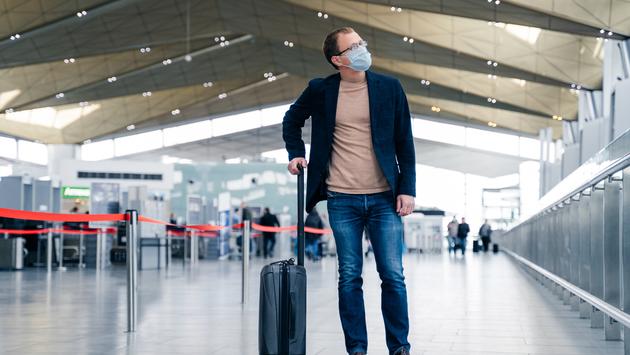There are times when our travel plans need to be unexpectedly canceled—sometimes at the last minute.
Adding cancel for any reason coverage (CFAR) is the best option for having a sure-fire way to get reimbursement, but it’s also pricey. CFAR coverage gives you reimbursement (usually 50% or 75% of your non-refundable trip costs) for cancellation no matter what your reason. You’re not tied to the cancellation reasons listed in the base policy. CFAR typically adds about 40% to your travel insurance cost.
While cancel for any reason travel insurance is a smart choice under many circumstances, there are numerous scenarios where you’d be covered for a last-minute cancellation without CFAR.
For example, AIG Travel’s travel insurance policies recognize numerous “covered perils” that will give you cancellation reimbursement for prepaid and non-refundable trip costs, even last-minute.
A medical emergency is one such scenario, says Scott Adamski, a spokesperson for AIG Travel. For example, if you got into a car accident and broke a leg the day before a trip, travel insurance could cover you, he says.
Other examples include a sudden declaration of bankruptcy by a supplier (such as a cruise line) or a hurricane that’s predicted to hit your destination during your scheduled trip, Adamski points out. (You’d have to purchase travel insurance before the hurricane became a named storm, however.)
But there are also scenarios where a last-minute cancellation would not be covered without CFAR insurance, says Adamski, such as fear of traveling or if you simply no longer felt like traveling. It’s important to read and understand your insurance policy to know the coverage provided, and the limitations and conditions.
Weigh Cancel for Any Reason Coverage Costs and Benefits
While a CFAR upgrade will offer the most lenient cancellation terms, it comes with some drawbacks. For example, it doesn’t reimburse all your lost money. CFAR typically reimburses you 50% or 75%, depending on the travel insurance plan you bought.
And you generally have to cancel at least two days before the trip in order to make a CFAR claim, points out Megan Moncrief, a spokesperson for Squaremouth, a travel insurance provider. That’s not exactly last-minute.
If you don’t want to pay the higher price tag for CFAR, standard trip cancellation coverage remains available up until your actual departure, and can be used for a “last minute” cancellation, says Moncrief—if the reason is covered by the policy.
“This is a better option for travelers, as standard cancellation coverage reimburses up to 100% of the insured trip cost,” says Moncrief. If you must cancel your trip at the last minute, Moncrief recommends contacting the provider’s emergency assistance and/or claims department immediately to ensure you meet any claim requirements and so you can collect any required documentation at the time of the cancellation.
“For example, all providers require a traveler to actually cancel their flight, they cannot simply be a no-show,” explains Moncrief.
Get Your Claim Paperwork Ready
Typically, required documentation for a trip cancellation claim includes proof of trip purchase, proof that the trip was canceled and proof of the reason for cancellation.
“Proof of purchase may include receipts, email confirmation, e-ticket, or credit card statement showing the original purchase, that includes the date and total amount paid,” says Moncrief.
You may also need proof of cancellation from a travel supplier—such as an airline, cruise, hotel, or tour operator—showing the date the trip was canceled and whether any refunds were issued.
Proof of the reason for cancellation could include documentation of a delay or cancellation of a flight, a statement from a doctor or other documented proof related to the reason for canceling.
If you cancel for medical reasons, you may need to provide additional documentation from a physician, such as medical reports related to medical stability or pre-existing conditions, says Moncrief.
Buy Travel Insurance at the Time You Book a Trip
When you book your trip, plan to include the cost of travel insurance in your budget and purchase it at the same time.
“Buy your insurance at the same time you book your trip to give you the longest period of coverage possible,” says Daniel Durazo, a spokesperson for Allianz Partners. “Once the kids get sick, a hurricane is named or something else happens that impacts your travel plans, it’s too late to buy insurance to cover that event.”
Other options need to be purchased when you buy your travel insurance plan, or soon after, such as cancel for any reason coverage and waivers for pre-existing medical condition exclusions.
“While you may be able to cancel your trip at the last minute due to a reason covered by your policy, don’t wait until the last minute to buy your insurance,” advises Durazo.
Source: Forbes


